There can be your advertisement
300x150
How to Quickly Clean Tile: Top Life Hacks That Will Make Your Life Easier
We explain how to clean the kitchen backsplash from grease, what to use to quickly polish glossy tiles to a shine, and what to do so that the tile gets dirty less often
The time-consuming process of washing ceramic tiles can be made easier and shortened in time by following our tips and life hacks. Did you know about them?
What inventory will you need?
- A soft but resilient brush to clean dried dirt. Too stiff bristles can damage the tile surface.
- An old toothbrush. Useful for cleaning grout lines between tiles.
- A sponge. To apply cleaning solutions to the tiles and remove dirt.
- A microfiber cloth. It's convenient to use for wiping away excess water after cleaning and polishing glossy tiles.
Life Hack
To speed up the process, consider purchasing technologically advanced cleaning tools — a steam cleaner and an electric brush. Window-cleaning robots with vacuum pumps can be attached to any smooth surface, including tiles. These gadgets are convenient to use on large areas tiled with tiles.
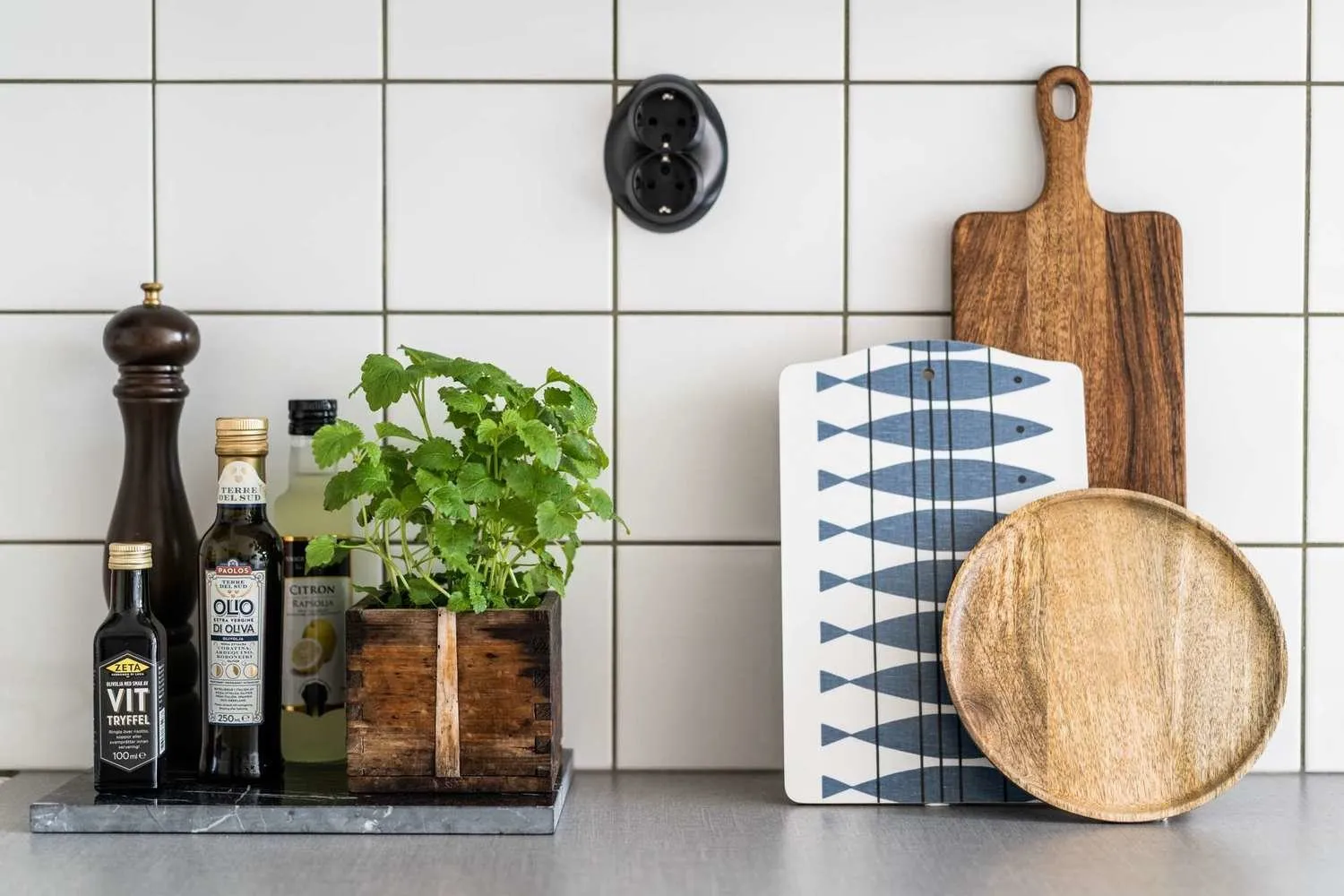 Pinterest
PinterestWhat Will We Be Cleaning? Grease and Micro-Food Particles
Light contaminants can be removed with dish soap or a baking soda solution: add four tablespoons to one liter of water, apply it to the tiles and leave for a few minutes. Clean and rinse with water. More complex contaminants can be removed using a cleaner designed for kitchen tiles.
Life Hack
Before starting to clean the tiles, try steaming them: fill a bathtub, shower, or kitchen sink with hot water, or pass the surface with a hairdryer. The pores in the tiles will open up, making it easier to remove dirt.
Lime and Soap Film in the Bathroom
The best way to deal with bathroom contaminants is with bathroom cleaning products. However, tiles can be damaged by acids in their formulas. In addition, the bathroom is a humid space with poor air circulation, and it's easy to inhale vapors from cleaning products during cleaning. Therefore, caustic acid-containing cleaners should not be used here and should instead be replaced with milder ones based on citric, lactic, or other organic acids.
Life Hack
Strong acids in the cleaning product will emit a sharp chemical smell from the bottle. These products should only be used with gloves and with open windows in the room.
Pay attention to the content of aggressive cleaning components. The most harmful are anionic surfactants (AOS). Regularly using cleaning products with a high content of AOS is unsafe: they accumulate in the body and can cause disorders in practically all vital systems. This may manifest as dry skin, dermatitis, and allergies.
 Design: Maria Ustinova
Design: Maria UstinovaWater Streaks on Glossy Tiles
These appear if you don’t dry the tiles thoroughly after cleaning. A microfiber cloth can help polish them. You should thoroughly wipe glossy tiles after every shower or bath, first rinsing with water.
You can use glass cleaner or try polishing tiles with ammonium spirit (2–3 tablespoons per liter of water). But it's better to reserve these methods for emergency cases and not overuse spirit-based solutions: alcohol vapors can be harmful to health.
Life Hack
Start cleaning wall tiles from bottom to top, ending with top-to-bottom. This will help you clean them quickly and without unnecessary movements.
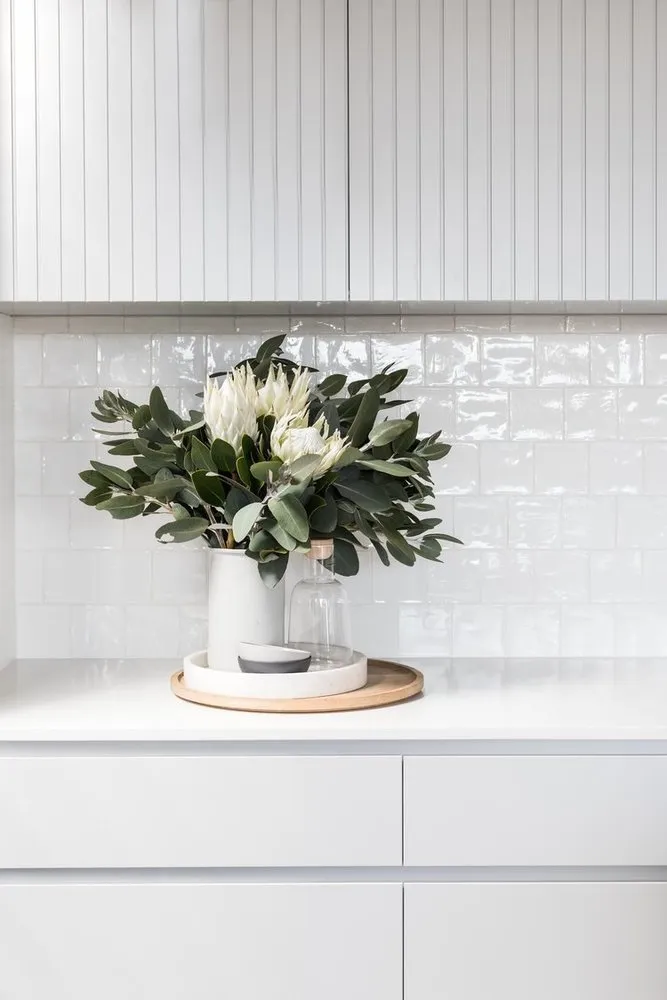 Pinterest
PinterestDarkened Grout Lines
Chlorine-based compositions can decontaminate and brighten darkened grout lines. However, chlorine is very harmful to the body and can damage the tiles themselves. This despite the fact that it goes through several stages of firing at very high temperatures during production.
Design: Anna Akopyan
The plus with such compositions is that they solve the problem only for white grout. If the grout is colored, after such disinfection the pigments will lighten and the color will become uneven. This can be fixed with special acrylic grout paint, but to apply it neatly, you’ll have to put in some effort.
More gentle methods of fighting discoloration and mold on grout lines include using a steam cleaner, weak acid-based compositions, or pencil-shaped cleaners.
LIFE HACK
Grout lines often become moldy, darken, and acquire an uneven color if you skimp on the grout and fill the joints with cement-based mix.
To avoid spending energy and time maintaining grout in clean condition, opt for epoxy two-component grout. It costs more but almost doesn’t absorb moisture, unlike cement-based grout, on which bacteria and mold reproduce poorly, it doesn’t change color, and it’s almost indestructible.
Design: Julia Kaufell
6 Tips for Clean Tiles and Grout
Give up black glossy tiles.
Or tile only a small area with them. This is the most noticeable option among all available.
Avoid overly rough tiles.
With such tiles, it’s almost impossible to slip, but they are also almost impossible to clean: the cloth gets caught on the rough surface, leaving fabric fibers behind, and fine dirt gets embedded into the tiles.
Wipe down the kitchen backsplash and floor tiles at the end of the day after cooking.
This daily ritual will take very little time, and you won’t have to spend a long time removing embedded dirt.
After laying tiles, treat the grout lines with sealant.
This will extend the life of the grout, especially if it’s cement-based.
Keep tile-covered surfaces dry.
A reliable preventive measure against mold and mildew is good ventilation in the bathroom and toilets, and always slightly open doors in humid rooms.
Do not use soap solution.
Soap creates a microfilm on the surface of tiles and grout, which is an excellent environment for mold and mildew growth.
Photo on the cover: Design by Anastasia Kapachinskaya
More articles:
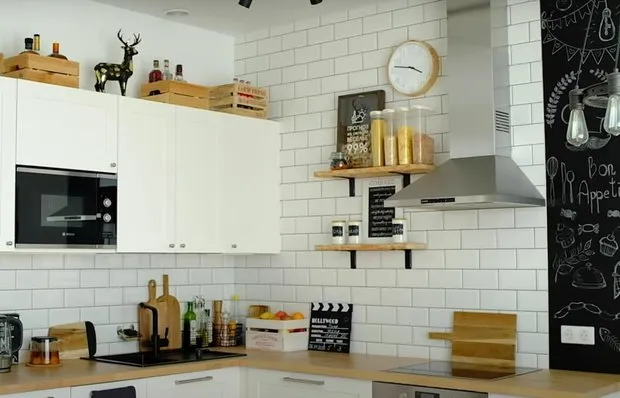 8 Cool Ideas That Will Change Your Interior Forever
8 Cool Ideas That Will Change Your Interior Forever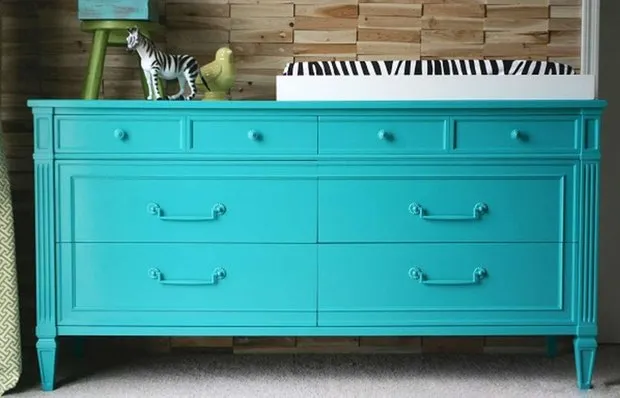 How to Properly Repaint Laminate Furniture by Yourself
How to Properly Repaint Laminate Furniture by Yourself 6 Tiny Houses from 23 to 43 m², Where Every Square Meter Is Used
6 Tiny Houses from 23 to 43 m², Where Every Square Meter Is Used Why Wall Panels Are the Best Modern Solution for Decoration
Why Wall Panels Are the Best Modern Solution for Decoration Photography in Interior: 7 Tips Used by Designers
Photography in Interior: 7 Tips Used by Designers How We Designed a 5 m² Kitchen with Complex Layout in a Stalin-era Apartment
How We Designed a 5 m² Kitchen with Complex Layout in a Stalin-era Apartment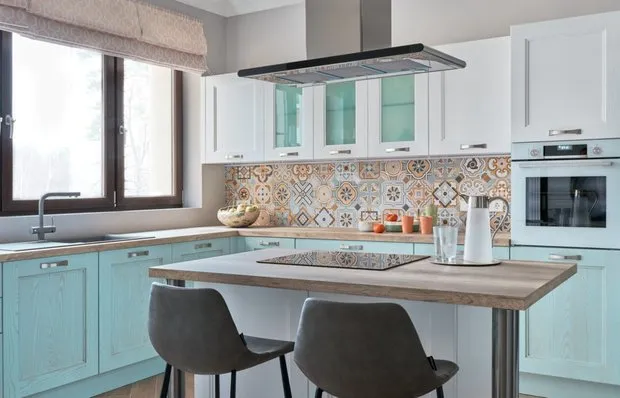 How to Plan and Start a Renovation: 5 Insights from an Interior Designer-Architect
How to Plan and Start a Renovation: 5 Insights from an Interior Designer-Architect 8 Very Beautiful Bathroom Designs Where the Vanity Sets the Mood
8 Very Beautiful Bathroom Designs Where the Vanity Sets the Mood